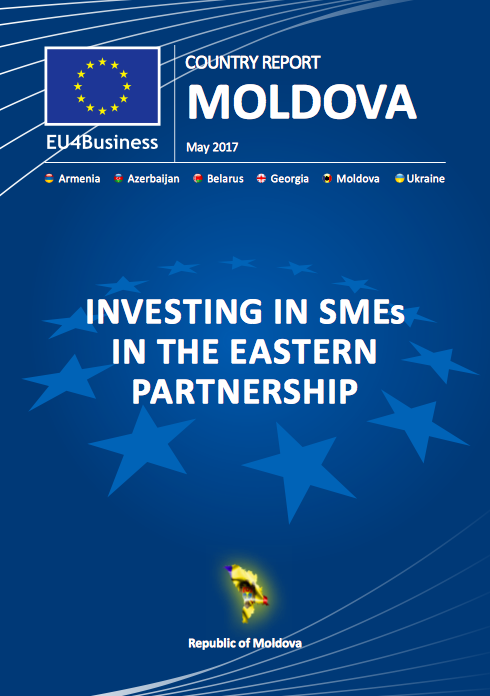
This EU4Business report provides an in-depth analysis of the economic situation in Moldova as well as presents the EU4Business projects currently being implemented in the country. It also focuses on current national policies and future measures planned in the national strategy for SMEs.
The SME climate in Moldova has considerably improved due to an increased focus on legislative simplification, expansion of e-government services and the simplification of business registration.
Due to Moldova’s strengthening of EU relations through the signing of the Association Agreement including provisions establishing the Deep and Comprehensive Free Trade Area (DCFTA), many funding options to stimulate SME activity are available and Moldova should ensure the legal and regulatory grounds for their proper usage.
Many international banking organisations (EBRD, EIB, the World Bank, etc.) have signed agreements with the European Commission with a view to managing funding through local Moldovan banks. One of the major obstacles in this respect is the lack of reliability (i.e. transparency, solvency) of the banking system. At the end of 2016, Moldova signed a new agreement with the International Monetary Fund worth 180 mln dollars focused on solving urgent issues related to the governance and stability of the banking sector.
Another issue encountered in relation to SME funding is the lack of guarantees provided. For instance, the Organisation for Small and Medium-Sized Enterprises (ODIMM), which is the main entity that manages national funding for SMEs, does not cover the role of a guarantee fund by providing a first-call guarantee.
| Attachment | Size |
|---|---|
| 2.51 MB |
